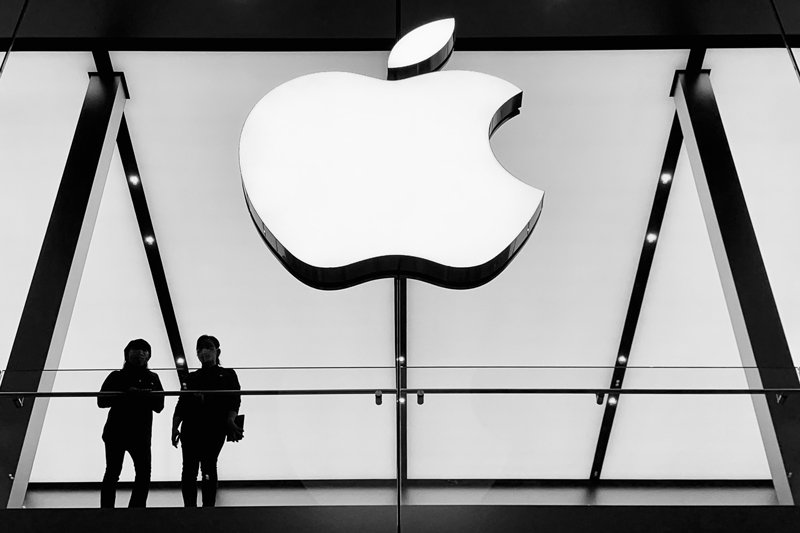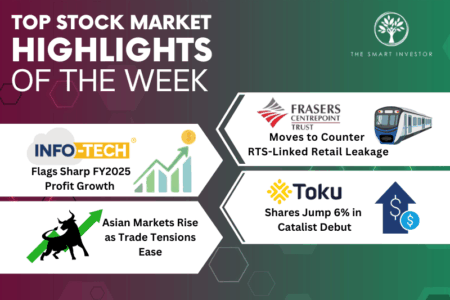REITs and stocks are hitting their 52-week highs.
A handful of Singapore blue-chip stocks did even better, soaring by 26% or more.
For some investors, this is exciting news, while for others, it sparks anxiety.
If the stock market has surged to record-breaking levels, does that mean the peak is near?
You are probably wondering if this is the moment to cash out, or if you should keep riding the wave.
This decision depends less on headlines and more on your personal goals, investment strategy, and discipline.
What Drives Markets to New Peaks
All-time highs are common in investing.
Historically, markets will rise over time.
Companies will innovate and grow their earnings.
Economies expand, resulting in stock markets trending upward over the long term..
However, just because the stock market hits an all-time high, it does not mean a crash is bound to happen.
Market correction and slumps are part of the bigger growth picture.
The Case of Buying at Highs
It may seem illogical to purchase stocks during a bull market, but those who are waiting for a market crash before buying may lose out on a tremendous amount of gains.
An example would be Apple Inc. (NASDAQ: AAPL).
Back on 2 September 2020, Apple rose to a high of US$137.98.
Fast forward five years, Apple’s September 2025’s share price is now US$229.72 per share.
Investors who did not buy the shares in 2020 would have lost out on a gain of US$91.74 per share, which translates to 66.5% in profits.
That’s excluding dividends too.
Impatient investors may attempt to capture short-term gains by buying stocks when it drops and selling once the momentum fades.
But it is not as easy as it looks.
For long-term investors, dollar-cost averaging (DCA) is a more dependable approach as it reduces the impact of volatility and price swings caused by market timing and helps investors avoid ill-timed market predictions.
The Case of Holding Your Stocks
If you are holding onto quality stocks, the simplest strategy when markets are at record highs is to stay on the course.
The health of the underlying business is more important than the share price attached to it.
For long-term investors, temporary market highs matter far less than the fundamentals of the businesses that they are invested in.
Long-term wealth creation comes from compounding, allowing your investments to grow over the years.
For example, Meta Platforms (NASDAQ: META) has been on an upward trajectory since its initial listing.
Meta’s January 2015 high of US$79.25 would tempt investors to sell their shares.
But if you are someone who looks at long-term investing, you would have benefited when their August 2025 peak hit US$796.25 per share.
Investors who had held on to the shares for slightly more than a decade would have made more than tenfold their initial investment.
Along with holding stocks of quality companies, investors can also enjoy substantial dividend payouts over the years.
The Case for Taking Profits
Of course, there are situations where selling your stocks during market highs makes sense.
If you need cash soon for a big purchase, to pay down debt, or for retirement, locking in profits is a rational decision.
Or perhaps, you realised that your portfolio is heavily biased to one stock or sector, and a portfolio rebalancing will help your long-term investment plans.
It could also be a case of runaway valuation, where the company’s share price soars far beyond business fundamentals.
When that happens, it could be an indication that it is time to sell.
A word of caution though: for quality companies, selling too early could mean missing out on future growth.
How to Decide What’s Right for You
When it comes to investing, there’s no one-size-fits-all solution. The right move depends on your personal circumstances.
Ask yourself these questions:
- What are your investment goals?
Are they long-term targets, such as having retirement funds in 20 or 30 years? Or are you investing for short-term needs such as a wedding or a home which you may need to finance in three to five years?
- What is your risk tolerance level? Can you stomach potential downturns, or would a dip cause you to panic-sell?
Adopting portfolio rebalancing is a disciplined way to help you trim gains without emotional decision-making.
If certain stocks or sectors have grown disproportionately, rebalancing can help to manage risk without you cashing out fully.
Get Smart: Don’t Fear Market Highs
All-time highs in the market should not scare you; this is normal and healthy.
Whether you buy, hold, or take profits, the key is to be disciplined and base decisions on your investment horizon, financial needs, and risk appetite.
There is no reason to be concerned about the market when they are hitting record highs if there is a coherent investment strategy in place.
Caving into the emotional part of the investment, chasing after sudden trends and cash, is not always the right approach, especially if the objective is long-term wealth creation.
Many investors think DeepSeek lowering AI costs means less revenue for tech companies. But that’s not the full story, and believing it could cost you. In our latest free report, we unpack a surprising insight from a top tech CEO who explains why lower AI costs may actually drive more tech spending, not less — and he’s got the numbers to prove it. If you’ve misunderstood this trend, you could miss out on some of the biggest investment opportunities. Click here now to access “How GenAI is Reshaping the Stock Market” today to get the full breakdown.
Follow us on Facebook, Instagram and Telegram for the latest investing news and analyses!
Disclosure: Wenting owns shares of Apple.





